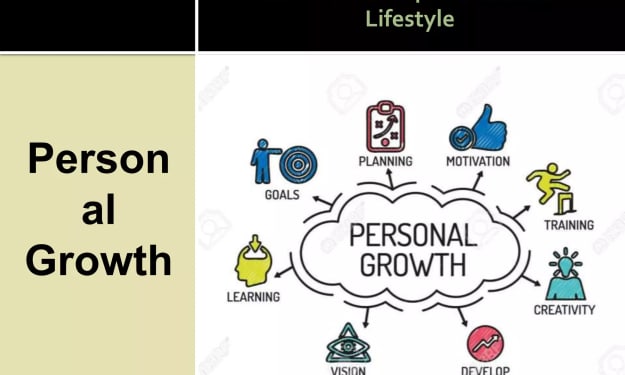From Seat Belts to Smoking Bans
The Power of Health Policy

Beginning in the 1950s, Dr. John States, an American orthopedic surgeon and sports car enthusiast, worked as a physician at the Watkins Glen International Speedway in New York. Witnessing numerous high-speed crashes, Dr. States noticed something intriguing: despite the faster speeds, racecar drivers were more likely to survive crashes without serious injuries compared to drivers on regular roads.
This discrepancy was attributed to safety precautions like seatbelts and helmets. At that time, there were minimal safe driving laws, and road-related deaths and injuries in the U.S. were skyrocketing. Recognizing the need for change, Dr. States dedicated several decades to researching severe crashes and even developed and patented his own seatbelt design.
Dr. States emerged as a prominent advocate for seatbelt usage and challenged policymakers in New York to prioritize automotive safety. Finally, in 1984, New York became the first state in the U.S. to mandate seat belt use, thanks to Dr. States' persistent efforts. Today, 49 states have implemented similar seat belt laws, resulting in a significant increase in seat belt usage—from 11% in 1981 to around 90% in 2020. This measure alone has saved nearly 15,000 lives in 2017 and reduced the risk of severe injuries by 50%.
Reflecting on this success story, we might view it as a fairy tale ending—an inspiring example of how public health and policy can join forces to improve and save lives. However, the reality of crafting health policy is not always as straightforward, especially when faced with public health crises. Policymakers often find themselves in a challenging position, having to balance individual freedom with the collective right to good health. Hi, I'm Vanessa Hill, and welcome to Crash Course Public Health! Today, we'll explore the fascinating intersection of health and policy, where policies are implemented to modify human behaviors or improve environmental conditions for better overall health and well-being.
Let's dive into the complexities of health policy by considering the issue of smoking in indoor public spaces. This not only impacts the health of the smoker but also poses risks to non-smokers inhaling the same harmful chemicals involuntarily. Governments worldwide have grappled with how to address this concern.
However, it wasn't until 2004 that Ireland became the first country to enforce a nationwide ban on smoking in all indoor workplaces. Similar to the seat belt laws advocated by Dr. States, smoking bans exemplify mandates—legal orders that dictate the actions of individuals or companies.
Assuming you've been following developments since around 2020, you're likely familiar with the concept of mandates due to the COVID-19 pandemic. Nonetheless, policies cannot simply dictate people to lead healthier lives. Policymakers need an array of tools in their health policy toolbox.
Some of these tools involve policies designed to educate and inform. Consider the example of healthy eating. Although there isn't a frozen-pizza-bagel police force ready to intervene when we indulge in one too many, food packaging provides nutritional information that reminds us of what we're consuming. In the United States, this is a result of the Nutrition Labeling and Education Act of 1990, which grants individuals the right to know the contents of the food they consume. Consequently, even the most enticing food packaging must prominently display those recognizable nutrition facts.
Additional information and warnings can also be found on product labels in certain countries, cautioning against excessive levels of sugar or sodium. Another complex but significant issue policymakers face is vaccination—strengthening the body's defenses against diseases through vaccines. Measles serves as an example. In 1912, measles became a notifiable disease in the U.S., requiring healthcare providers to report cases to local health departments. By 1963, nearly every child in the U.S. was expected to contract measles by the age of 15, leading to millions of infections, hundreds of deaths, and thousands of hospitalizations each year. However, the implementation of childhood vaccination policies over the past few decades has significantly improved overall childhood health. In 2000, the U.S. declared measles eliminated, thanks to government and public health initiatives to ensure widespread vaccination.
Different countries adopt varying approaches to vaccination policies. A 2019 analysis revealed that out of over 140 countries, 89 had some form of nationwide mandatory vaccination for children, while in 20 countries, including the U.S., vaccination was only mandatory for school entry. Meanwhile, 33 countries recommended childhood vaccinations but did not enforce mandates.
Policies also have a profound impact on health through less apparent means, such as environmental regulations. In 1970, with input from health experts, politicians, and factory workers, the U.S. passed the Clean Air Act, which regulated the emissions of hazardous pollutants from vehicles and factories. Over the following decades, emissions of six common air pollutants decreased by 78%, leading to the prevention of premature deaths, asthma, bronchitis, and heart attacks. Governments worldwide have achieved significant health improvements through a wide range of policies and programs.
Now, let's take a closer look at Brazil—a country that holds health as a fundamental human right. Its constitution explicitly states that "Health is a right to be enjoyed by all and a duty of the State." Brazil takes this principle seriously by providing free healthcare in hospitals and clinics through its universal healthcare program, available to both citizens and foreign residents. The country has also demonstrated swift responsiveness to disease outbreaks, such as HIV/AIDS. As global cases rose dramatically from 2006 to 2015, Brazil rapidly addressed the situation by offering free treatment to all HIV-positive adults seeking care. In 2017, Brazil became the first country in Latin America to incorporate a preventive pill for HIV into its healthcare policy, making it accessible to anyone interested. By negotiating a favorable deal with the drug manufacturer, the Brazilian Health Ministry successfully acquired the medication at a significantly reduced cost of 75 cents per dose, greatly enhancing preventive treatment accessibility.
These examples highlight the ways in which policy can influence our health. However, it is important to recognize that many policies impacting our health are not explicitly categorized as "health policies." Instead, they have indirect, often unintended consequences on our well-being. Take zoning laws, for instance, which regulate land use and development. While primarily intended to govern land, these laws inevitably affect human health since people use land for various activities, including living.
By supporting Crash Course on Patreon, you'll get access to great perks like exclusive content and the opportunity to participate in Q&A sessions with the Crash Course team. Your support helps us continue creating educational content that is accessible to all.
In conclusion, health policies have a significant impact on our well-being, shaping behaviors, and improving environmental conditions. From seat belt laws to smoking bans, vaccination policies to environmental regulations, these policies play a crucial role in promoting public health and saving lives.
Governments, at various levels, are primarily responsible for creating and enforcing health policies. International coordination is facilitated by organizations such as the World Health Organization (WHO), which brings together experts and resources to address global public health issues.
However, health policy change is not solely the realm of governments and international organizations. Social justice movements, driven by grassroots activism, have been instrumental in advocating for health policy reforms. Examples include the AIDS Coalition to Unleash Power (ACT UP), which pressured authorities to expedite drug approval processes during the HIV/AIDS epidemic.
To ensure that health policies benefit everyone and reduce health inequities, ongoing evaluation and collaboration with affected communities and health experts are essential. By considering health in all policy areas, we can break down barriers and create a healthier future for all.
Let's make a positive impact on global health.





Comments
There are no comments for this story
Be the first to respond and start the conversation.